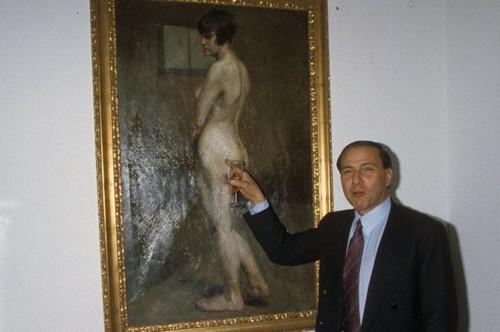Huge collection of art by the late ex-Prime Minister of Italy Silvio Berlusconi consists mainly of low-quality works that are of no value, said one of the leading Italian art historians, Vittorio Sgarbi.
@banksta, 10.24.2023, 01:45: In Italy, the collection of paintings that Berlusconi collected will be destroyed. […] the collection itself of 25 thousand paintings is worth almost nothing – art critics assure that all the works in it are of low quality. Former Italian Prime Minister Berlusconi suffered from insomnia and purchased most of his “masterpieces” on late-night TV channels like “Shop on the Sofa.” — Insert K.ru
Managing the vast collection has become a headache for the heirs of the politician and media mogul, who died in June this year.
The paintings are stored in a warehouse with an area of 3200 square meters. m next to the villa in Arcore near Milan, where Berlusconi spent most of his life, La Repubblica reports.
Sgarbi was not impressed by the collection – he told the publication that “people who are poorly versed in art would be happy to visit the museum where these works are stored.” According to him, out of 25 thousand paintings in the collection, only six or seven works are of artistic value.
The entire collection is valued at approximately 20 million euros. The most expensive works were kept at Berlusconi’s villa – in particular, original works by Titian and Rembrandt.

London art dealer Cesare Lampronti, who maintained a close relationship with Berlusconi for 30 years, told the BBC that the billionaire was an impulsive buyer.
“He loved to buy portraits of women, which he gave to friends. When he was younger, he bought from galleries and dealers, but later began purchasing paintings at televised auctions, Lampronti said. “He knew it wasn’t worth anything.”
According to La Repubblica, maintaining a warehouse where works of art are stored costs approximately 800 thousand euros per year.
Woodworms have already destroyed part of the collection. In some cases, the cost of exterminating pests exceeded the cost of the paintings themselves.








